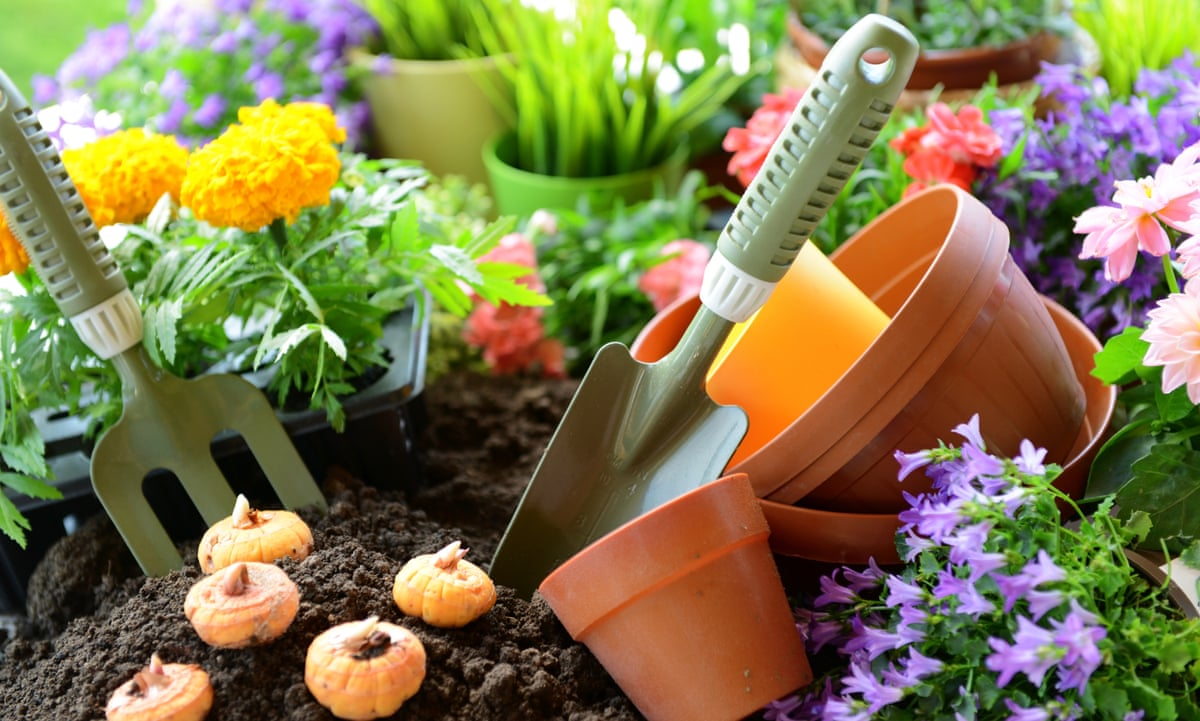The Ultimate Guide to Horticulture for Beginners: Detailed Tips and Strategies for Growing a Prospering Garden
From understanding your yard room to picking the right plants and preparing the dirt, we've obtained you covered. Obtain ready to release your environment-friendly thumb and produce a beautiful, flourishing garden.
Understanding Your Garden Area
Understanding your yard area is necessary for producing a prospering yard. This will certainly assist you establish which plants will prosper in each area. gardening tips for beginners.
Next, assess the soil in your garden. Understanding your soil kind will lead you in choosing the right plants and carrying out ideal soil modifications. This information will help you make informed decisions about watering and plant placement.
Moreover, take notice of any type of microclimates within your garden. These are small locations that may vary in temperature level or wetness levels contrasted to the remainder of your garden. A south-facing wall might retain warm, developing a warmer microclimate. Utilize these variations to your benefit by growing heat-loving or moisture-loving plants in these areas.
Selecting the Right Plants

Do you choose low-maintenance plants or are you prepared to place in added initiative for high-yield crops? Believe concerning the amount of time, power, and sources you are willing to invest in your yard.
In addition, consider the area readily available in your yard. Take measurements and plan the format of your plants. Consider the mature dimension of each plant and ensure they have adequate room to expand without congestion each other.
Lastly, think of the usefulness of your plant selections. gardening for beginners. Will you be able to provide the required care and maintenance for your chosen plants? Take into consideration elements such as watering, fertilizing, pest control, and trimming
Preparing the Soil for Growing
Once you have selected the appropriate plants for your growing yard, it's time to study the essential job of preparing the soil for planting. Before you begin excavating, it's critical to analyze the quality of your dirt. Take a sample and examination its pH levels, as different plants grow in different pH ranges. If needed by including lime to elevate it or sulfur to decrease it., readjust the pH.

When the dirt prepares, create furrows or holes for planting. The deepness and spacing will certainly rely on the particular demands of your selected plants, so describe the seed packages or plant labels for support. Gently position the plants in their marked areas, making certain that the roots are covered with dirt. Firmly push the dirt around the base of each plant to get rid of any kind of air pockets.
As you water, be careful not to wash away the dirt or damages the delicate plants. With proper dirt preparation, your garden will certainly be fully equipped to sustain the growth and success of your plants.
Watering and Fertilizing Methods
After preparing the soil for growing, it's important to comprehend efficient watering and feeding strategies to guarantee the health and growth of your yard. When it involves watering, it is necessary to strike a balance. Overwatering can cause root rot and other illness, while underwatering can lead to stunted growth and wilting. The key is to offer adequate water to maintain the soil regularly wet but not saturated. One way to determine if your plants need watering is by sticking your finger concerning an inch right into the dirt. If it really feels gardening tips for beginners completely dry, it's time to water. When watering, go for the base of the plants, as moistening the leaves can motivate diseases. As for feeding, it's important to give your plants the nutrients they require to thrive. Organic plant foods, such as compost or well-rotted manure, are excellent options as they offer a sluggish release of nutrients. It's best to use fertilizers in early spring or late fall, following the directions on the package. Keep in mind to sprinkle your plants after fertilizing to aid the nutrients get to the roots. By grasping these watering and feeding methods, you'll be well on your method to a growing yard.
Preserving a Healthy Yard
To preserve a healthy garden, you need to routinely evaluate your plants for signs of parasites or diseases. By doing this, you can catch any type of issues beforehand and take the required steps to stop them from spreading out and triggering damage to your entire yard. Try to find any unusual places on fallen leaves, yellowing or wilting foliage, or openings in the leaves, as these could be indications of illness or insects. It is important to take instant action. if you observe any of these indicators.
One means to deal with bugs is by utilizing all-natural treatments such as insecticidal soaps or neem oil. These work in controlling usual insects like aphids, mites, and whiteflies without harming useful bugs. One more method is to motivate valuable pests like lacewings and ladybugs, which eat garden insects. Planting flowers such as marigolds, sunflowers, and daisies will draw in these advantageous bugs to your garden.
In enhancement to pests, illness can additionally influence your plants. To avoid the spread of diseases, it is essential to practice excellent yard hygiene. This consists of removing any type of contaminated plants or leaves, disinfecting your horticulture tools, and preventing over-watering. Proper spacing in between plants and good air blood circulation can additionally help protect against the spread of conditions.
Final Thought
By comprehending your garden room, choosing the right plants, preparing the soil, and executing proper watering and fertilizing methods, you can develop a flourishing yard. With persistence and commitment, you'll soon be taking pleasure in the elegance and bounty of your very own growing yard.
Utilize these variants to your advantage by growing heat-loving or moisture-loving plants in these locations.